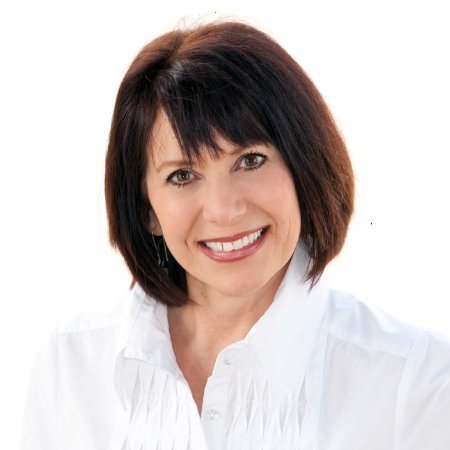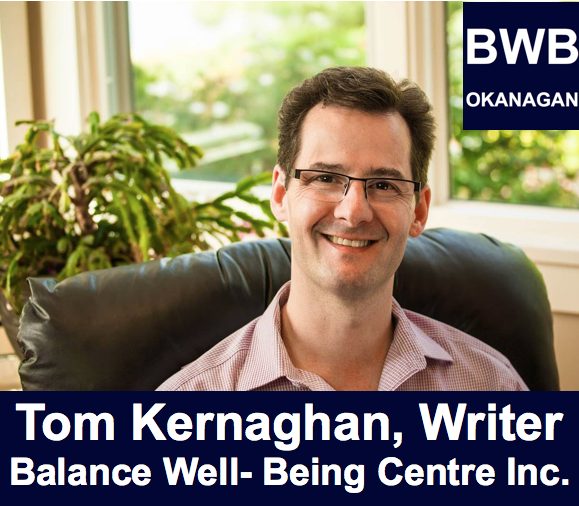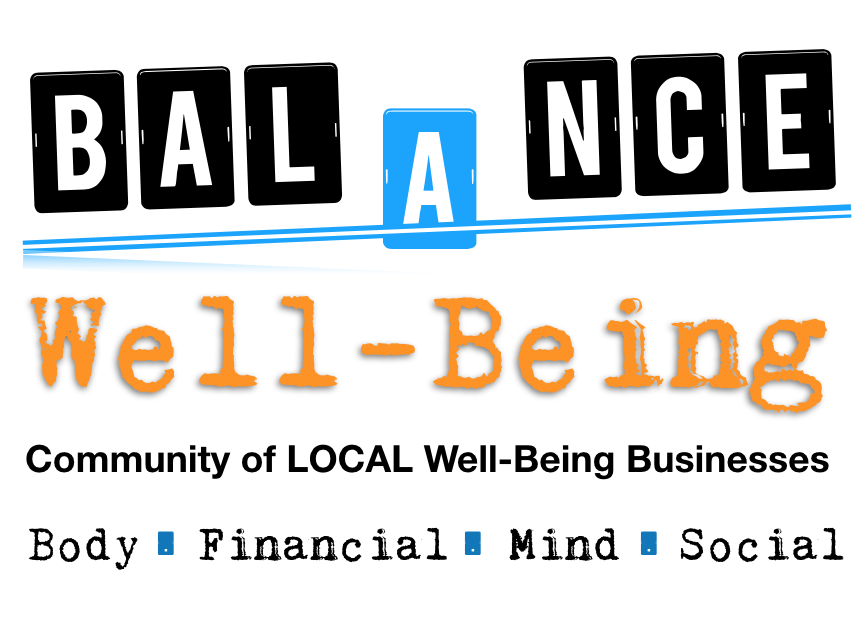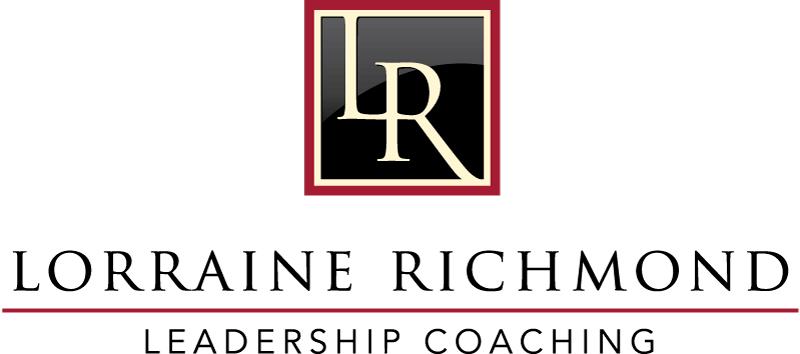 Lorraine Richmond wants to know your story, so she can help you break through it and tell yourself a better one — your truth. As a certified life and leadership coach also trained in the application of Conversational Intelligence®, Emotional Intelligence, and the Values Blueprint System©, Lorraine helps leaders to discover their values, purpose, and pathways to meaningful living and leading. To do this, however, they have to be prepared to break a few rules, challenge some assumptions, and walk away from received wisdom.
Lorraine Richmond wants to know your story, so she can help you break through it and tell yourself a better one — your truth. As a certified life and leadership coach also trained in the application of Conversational Intelligence®, Emotional Intelligence, and the Values Blueprint System©, Lorraine helps leaders to discover their values, purpose, and pathways to meaningful living and leading. To do this, however, they have to be prepared to break a few rules, challenge some assumptions, and walk away from received wisdom.
The phrase of hers that stuck with me was “resolve the cluttering dissonance.” Focused on reaching clarity, identifying authenticity, and moving people forward, Lorraine aims to bring positive change to the world one person, community, and industry at a time.
So we are thrilled she has shared some valuable insights with us.
Let’s leap right in and lay into lies. The aspect of your work that most fascinates me is what we tell ourselves and each other without examination or question. It seems to me that this very human tendency goes to the heart of what is keeping us from achieving the balance necessary for personal health, well-being, and meaning. Why do we do this, and what have you found are some of the most common lies we cling to?
We are hardwired with an addiction to being right. We want to believe the stories we tell ourselves. Because if we are not right, then our intrinsic value feels shaky, which highlights thoughts of insecurity, the imposter syndrome, and the “never enough” belief.
Who wants that? Social rejection is believed to be feared more than death itself. So, it has become an acceptable human default to simply allow our own ladder of conclusions to become our version of truth.
Here are some of the common lies we cling to:
- The cost of telling the truth is too high.
- Our perspective is the right perspective (or at least more right than the view of others).
- The success of a human being is based on performance, production, education, money, the approval of others, or lack of same.
- We think we are good listeners.
- Failure of an endeavour is equal to a person being a failure (for life).
- We are not good enough.
- Things will never change.
- We can do this on our own.
I love your line, “Clarity is the foundation of success.” And yet reaching it is a challenge for most of us, in my experience. You have some effective tools and models — Values Blueprint, Bigger Game, and Clarity Model — for helping people achieve clarity. Talk a bit about how these work, or how you first approach a client.
When a client approaches with a need or request for a future desired outcome, it is my place to listen, to get them at a deeper level than they get themselves, to help them develop a strong awareness of their perspective of their reality. It is also my place to create a safe, trusted context where together we can create a values-based alignment, process, and strategy for their goals and agenda.
Prior to our first meeting, a few thoughtful questions are sent to the client as pre-work. One of the questions is this: What are your core values, those deeply held guiding principles (without using the words honesty and integrity)?
As a coach, I listen for these deep core values, personal meaning, and what matters most to the individual. It is my job to make the invisible visible to the client. Once clarity begins to emerge, the decision becomes simple and clear. It may not be easy, but it is clear.
Clarity evolves in many ways. The greatest moment of clarity can be accessed in a conversation with a skilled coach who is fully present, listening to the vocabulary, nuances of language (verbal and body language) as well as to what isn’t being said. The power of clarity is in the relationship of the conversation.
An individual cannot be their own coach, or play their best and biggest game by staying in their own mind. That would be like the manager of your favourite sports team volunteering to be the referee for the next home game.
Roy H. Williams wrote, “The risk of insult is the price of clarity.” This is a powerful quotation. Your willingness to face the risk of pushing past discomfort in order to grow in clarity, and to have your clients do the same, is as admirable as it is uncommon. Why is this important to you? Can you point to events or experiences in your life that impelled you to take this journey to help others?
All of science, nature, and history show us that growth requires leaving what is currently familiar. That brings discomfort. It also teaches us that without continual growth, the satisfaction of a meaningful life will begin a downward spiral. Communication gaps occur, relationships grow distant, business partnerships break down, passion fades, businesses fails, and well-being declines.
Name the elephant. Ask the tough questions. Face personal responsibility. This gutsy question of what you are pretending not to know belongs in the safe and values-based conversation with a trusted coach.
I feel richly blessed to have experienced the heights of meaningful leadership. I know what it is to inspire and influence a cultural change where deeply held values and meaningful purpose matter. I know what a genuine team and community looks and feels like. My life has been enriched with the euphoria of shared success and shared endurance of loss, grief, and failure. I am rich in ways that money cannot buy.
The greatest catalyst for my call and purpose was a personal experience of deep and devastating betrayal within a high leadership team.
To have willingly offered the best of my intentions, talents, strengths, time, and full trust to a team of leaders for years and years and years, only to experience the slow dawn of realization that instead of mission-critical risk and sacrifice, there was actually an agonizing decay in the form of leadership betrayal and abandonment unlike anything any human being should ever have to experience.
I remember lying in bed night after night tormented by the indescribable physical pain of emotion, thinking, I will make it, this is as raw and hurtful as it could possibly be, I can do this, it will get better, and then the pain of emotional rawness continued to deteriorate layer after layer after layer, for a very long time.
Eventually, I re-surfaced and began to breathe again. And therein lies another story. But this fascinating gift of real life catalyzed and re-confirmed my fiery commitment to be a voice and a stand, a partner to help others bravely face the dissonance they experience in life and in leadership.
The headline is this: be crystal clear on your values and the meaningful purpose of your life.
The fine print is this: Your values and purpose will clash with the status quo, with societal or institutional standards that insist on a different agenda for your life. You will hit a crisis of values. There is a cost of pain, discomfort, and risk if you truly step up to make a difference in the world in your unique way.
Language! As you might guess, words are important to me. I’ve apprehended you’re attracted to alliteration. Some would say that’s the playful and pleasing part, but this is serious business, in my view. As a speaker and coach, you know the importance of getting our message right. Talk more about the power of words and why every one of them matters.
“To get to the next level of greatness depends on the quality of our culture, which depends on the quality of our relationships, which depends on the quality of our conversations. Everything happens through conversations.” — Judith E. Glaser
I am fascinated by the neuroscience of why every word matters.
There are worlds in words. Everything lives in language. Our words hold the capacity to build or break trust. And without trust, there is no relationship or connection. And I once heard it said that a relationship without trust is like a phone without service, and without service you play games.
Life is too big, too juicy, too fragile, too messy, and too wonderful to play games.
Our culture and our planet are in desperate need of values-based leaders to attend to the inner work, so that they in turn can inspire and influence a culture of equality and meaningful purpose for all stakeholders.
We like to finish our profiles with a fun personal tidbit, something people may not know about you. Care to reveal quick quirk about yourself?
I confess to being headstrong from birth, a coffee snob by choice, and a non-conformist by accident.
Lorraine Richmond
250.808.5654
[email protected]
www.lorrainerichmond.com
Tom Kernaghan, owner of Oak Writer 
I write stories about people, businesses, and communities so that people will remember what makes them uniquely powerful.
Tell me your story!
(250) 863-6297
oakwriter.com

